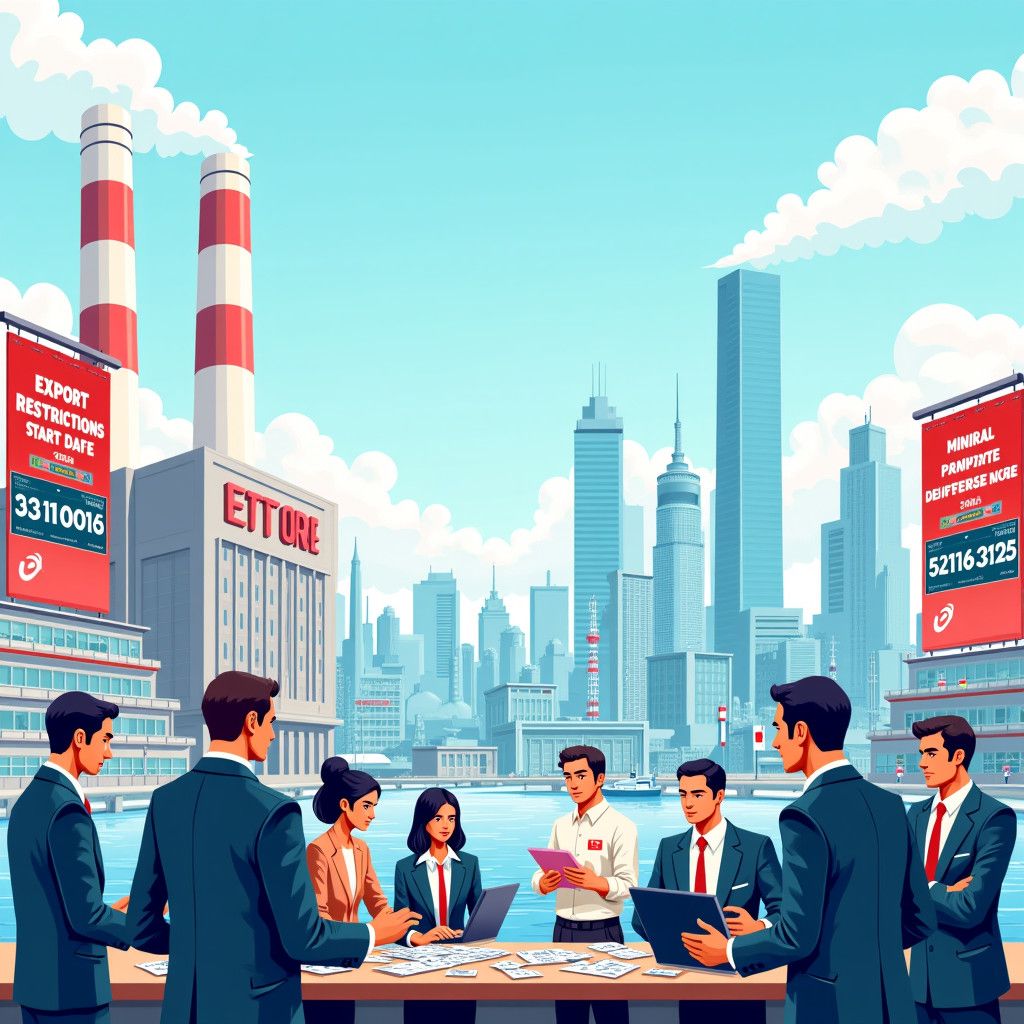In a strategic move that could reshape the dynamics of international trade, China has announced its intention to implement export restrictions on critical battery and mineral technologies. This proposal, unveiled in early 2025, reflects the nation’s growing concern over protecting its domestic industries amidst escalating global trade tensions, particularly with the United States and the European Union.
Context of the Proposal
China’s decision comes at a time when the global demand for batteries and minerals, particularly lithium, cobalt, and nickel, is soaring. These materials are essential for electric vehicle (EV) production, renewable energy technologies, and a myriad of consumer electronics. According to a report by the International Energy Agency (IEA), global sales of electric cars reached a record 10 million units in 2022, marking a 55% increase from the previous year. This surge is projected to continue, making access to battery materials increasingly pivotal.
While China already dominates the supply chain for many of these minerals—accounting for over 60% of the world’s lithium processing and around 80% of cobalt refining—sending a clear signal of its intentions, the nation aims to fortify its grip on these critical resources through regulatory mechanisms.
Economic Implications
The proposed restrictions could have profound implications for global markets. The notion of limiting exports of essential battery components is likely to drive prices higher, amplifying the cost of EVs and consumer electronics. Additionally, countries heavily reliant on imports from China will face significant supply chain challenges.
For instance, the United States has increasingly relied on China for lithium, with over 80% of its lithium-ion battery supplies stemming from Chinese companies. If these restrictions are implemented, U.S. manufacturers may be forced to turn to alternative sources, which could lead to delays in EV production and increased costs across the board.
The European Union is equally poised to feel the effects of this policy shift. As it aims to transition to greener technologies and increased EV adoption, access to stable mineral supplies is crucial. This move by China may push European nations to accelerate their own mining and refining capabilities, ultimately hastening the race for self-sufficiency in raw materials.
Strategic Motivations
China’s motivations behind these proposed restrictions are multi-faceted. Firstly, they are intended to protect its burgeoning green technology sector, ensuring that Chinese firms retain a competitive edge in the fast-growing EV market. By restricting exports, China can regulate the supply of critical materials and ensure domestic needs are met first, fostering innovation within its borders.
Moreover, the geopolitical landscape has shifted dramatically in recent years, with trade relations between China and Western nations growing increasingly tense. The U.S.-China trade war, which started in 2018, has seen a flurry of tariffs and sanctions, most recently around technology and critical mineral supplies. By imposing these restrictions, China is positioning itself as a forthright player in this global rivalry, asserting its influence not just politically, but economically.
Global Industry Response
The reaction from global industries has been swift. Major automotive manufacturers and tech companies expressed immediate concern over potential disruptions. Elon Musk, CEO of Tesla, has stated that any limitations will exacerbate already existing supply chain vulnerabilities, necessitating Tesla’s investments in lithium extraction and battery production in regions such as South America and Australia.
Experts argue that a collaborative response is crucial. Many countries are now prioritizing legislation to bolster domestic mineral production and processing capabilities. For instance, the U.S. Senate has proposed incentives for domestic mining initiatives, particularly for minerals critical to technology and energy sectors.
Conclusion
China’s proposed export restrictions signal a pivotal shift in the landscape of global trade and technology. As demand for EVs and renewable energy solutions skyrockets, access to essential minerals has never been more critical. Countries around the world must now navigate this new reality, developing strategies to mitigate risks associated with dependence on Chinese supplies.
In this era of heightened economic nationalism and protectionist policies, collaboration among nations to ensure supply chain resilience will be essential for fostering innovation in the green technology space. The implications of these restrictions may not only reshape market dynamics but also reconfigure alliances on the global stage, making it imperative for industry leaders and policymakers to act promptly.












